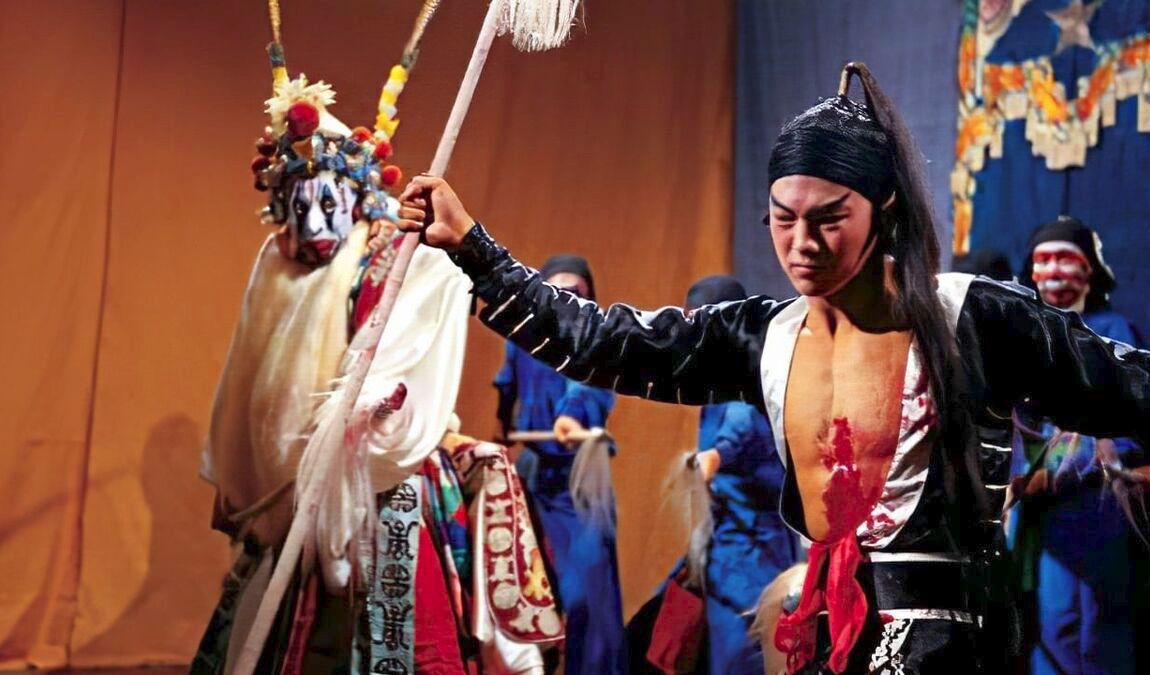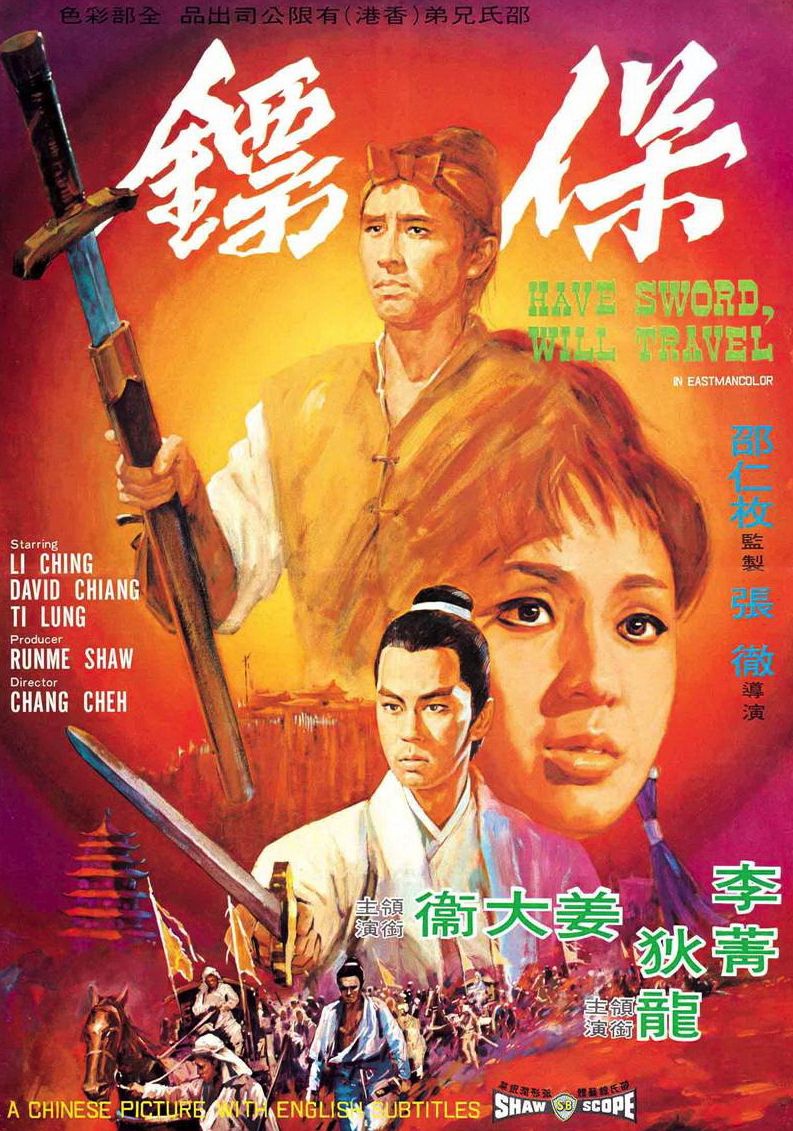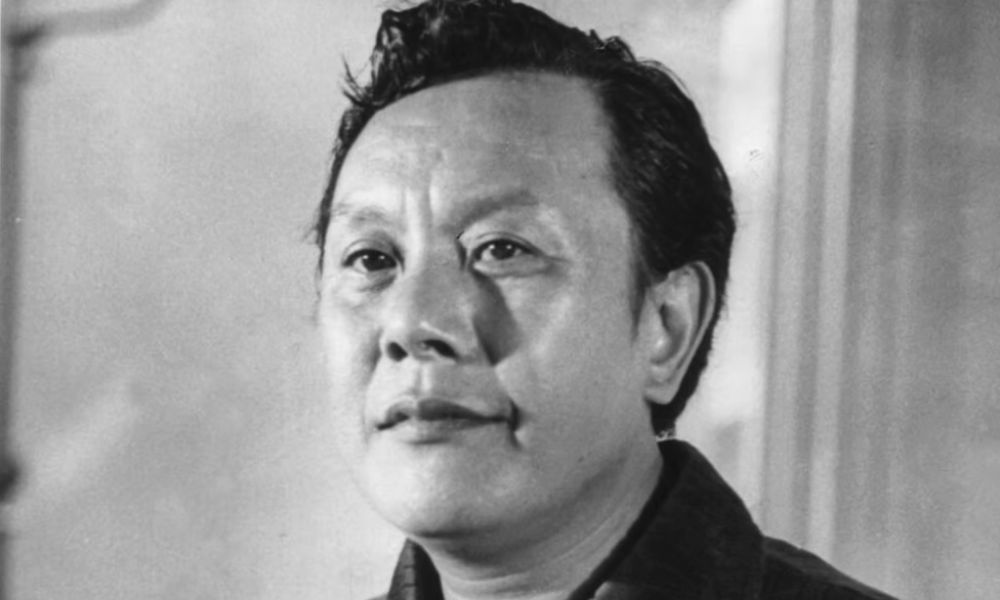"One of the most prolific directors in the history of Hong Kong cinema, Cheh Chang was also one of the most distinguished makers of martial arts films. Chang came to prominence in the mid-1960s with a series of wuxia pian (period swordplay) movies, including Heroic Three (1966), One-Armed Swordsman (1967) and Return of the One-Armed Swordsman (1969), where he put the male hero to the forefront in bloody fight scenes, and the focus on loyalty, honor, and camaraderie." - Andy Willis (501 Movie Directors, 2007)
Chang Cheh
Director / Screenwriter
(1923-2002) Born February 10, Hangzhou, Zhejiang, China
(1923-2002) Born February 10, Hangzhou, Zhejiang, China
Key Production Country: Hong Kong
Key Genres: Action, Action-Adventure, Drama, Martial Arts Film, Kung Fu, Romance, Wuxia, History, Adventure, Mystery-Suspense, War, Mystery
Key Collaborators: Ni Kuang (Screenwriter), Chiang Hsing-Lung (Editor), Runme Shaw (Producer), Johnson Tsao (Production Designer), Ku Feng (Character Actor), Kung Mu-To (Cinematographer), Cheng Lei (Character Actor), David Chiang (Leading Actor), Ti Lung (Leading Actor), Chen Yung-Yu (Composer), Lo Meng (Leading Actor), Lu Feng (Leading Actor)
Key Genres: Action, Action-Adventure, Drama, Martial Arts Film, Kung Fu, Romance, Wuxia, History, Adventure, Mystery-Suspense, War, Mystery
Key Collaborators: Ni Kuang (Screenwriter), Chiang Hsing-Lung (Editor), Runme Shaw (Producer), Johnson Tsao (Production Designer), Ku Feng (Character Actor), Kung Mu-To (Cinematographer), Cheng Lei (Character Actor), David Chiang (Leading Actor), Ti Lung (Leading Actor), Chen Yung-Yu (Composer), Lo Meng (Leading Actor), Lu Feng (Leading Actor)
"Chang Cheh is one of the most discussed filmmakers in Hong Kong, although abroad, he is only known to followers of martial arts films. Chang made an indelible mark on the city’s film industry in the late 1960s when, along with King Hu, his contemporary at Shaw Brothers, he revolutionised the wuxia genre with films like One-Armed Swordsman and Golden Swallow… Although his output is patchy, he made some classics that became landmarks of Hong Kong cinema. The director brought the wuxia genre up to date by adding violence and gore, and by shooting and editing the action sequences with more modern techniques. He also changed the gender balance of Hong Kong films, which in the 1950s and 1960s had favoured female heroes, with the male characters often weak. Chang brought macho heroes to the fore, and made them rebellious and angry to suit the tenor of the times. When the wuxia genre faded in the 1970s, Chang started making kung fu films, and saw similar success there." - Richard James Havis (South China Morning Post, 2020)
"Chang Cheh, like his colleague King Hu, was an outsider to the Hong Kong film industry, and yet his films are quintessentially – iconically – Hong Kong films. Chang was an unparalleled master of the martial arts film in all its forms. In addition, he was one of the most prolific directors of all time: at the peak of his considerable powers, Chang was making five (1971), six (1969), even eight (1972) films a year… A director’s success and longevity depend on his or her films receiving a wide audience. Chang found ways to please the crowds that also happened to afford him the opportunity to experiment with the themes and structures that meant the most to him as an artist. In many ways, Chang Cheh’s films are the perfect blending of art and commerce, and thereby embody the wonderful paradox at the heart of moviemaking." - Ethan de Seife (Senses of Cinema, 2003)

Vengeance! (1970)
"Chang Cheh, a seminal figure in Hong Kong, was well regarded as a film director, predominantly known for his works from the 1960s through the 1980s. A Chinese national, he directed over 90 films, primarily with Shaw Brothers Studio in Hong Kong. His films, mostly in the action genre, particularly emphasised wuxia (martial heroes) and kung fu and were renowned for their violent content." - Bronze Screen Dream
"As the storied Shaw Brothers began to transform the Hong Kong film industry in the 1950s, a new golden age was on the horizon. At the vanguard of it was director Chang Cheh. The martial arts action in his movies was awe-inspiring—and so too was his career… Over 25 glorious years, as one of the pioneers of “Heroic Bloodshed” and the revival of the wuxia genre, he minted stars and influenced generations of cinephiles and filmmakers from John Woo (one of his assistant directors) to Quentin Tarantino, who dedicated Kill Bill Vol 2 to him." - Quad Cinema
"Chang liked keeping it simple: telling straightforward stories about complicated people. And more than anything, his films were always a visceral experience. Chang's cinema was primarily a world without women; a masculine brotherhood where honour and loyalty ruled supreme - but a realm where the hero didn't always win or survive. Not surprisingly, he was heavily influenced by the works of maverick directors Akira Kurosawa, Sergio Leone and Sam Peckinpah… Chang instilled a violent sensuality in his movies; young muscular bodies always glistened with sweat and training routines gave them an Adonis-like appeal. The flipside was that such bodies were regularly beaten, stabbed and disemboweled in graphic combat sequences." - John Snadden (The Age, 2004)
"Chang Cheh's contribution to Hong Kong and Chinese cinema has long been assured, and the influence of his works is still felt. We admire him for his cinematic style and integrity, and we are grateful for his legacies which have now become part of our cherished memory and have never failed to inspire us. He is, by any definition, a master of our time." - John Woo (Hong Kong Film Archive, 2002)
Selected Filmography
{{row.titlelong}}
"Fan Club"
These film critics/filmmakers have, on multiple occasions, selected this director’s work within film ballots/lists that they have submitted.
These film critics/filmmakers have, on multiple occasions, selected this director’s work within film ballots/lists that they have submitted.


